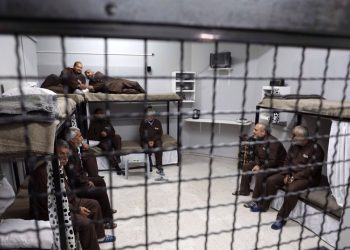Human Lives Human Rights: India is a country with a rich and diverse religious history. It is the birthplace of four major world religions: Jainism, Hinduism, Buddhism, and Sikhism. The country also has significant Muslim, Sikh, Christian, Buddhist, Jain, and Zoroastrian populations. The Constitution of India guarantees freedom of religion and mandates a secular state. However, there have been numerous incidents of religious intolerance that have resulted in riots and violence.
Religious Gatherings in India: A Human Rights Perspective
One of the largest religious gatherings in India is the Kumbh Mela festival. This Hindu pilgrimage is held every 12 years at sacred river-ford sites along the Ganges River. In 2021, the government expected over a million pilgrims a day to bathe in the sacred river during the festival. Over 5 million people were expected per day on the most auspicious days – April 12, 14, and 21 – for a total of 100 million celebrants.
While the Kumbh Mela festival is an important religious event for Hindus, it also raises concerns about human rights. The large crowds and close quarters can create conditions for the spread of disease. In 2021, there were fears about the spread of COVID-19 during the festival. Additionally, there have been concerns about the safety and well-being of the millions of people who attend the festival.
Despite these concerns, many Indians see religious tolerance as a central part of their national identity. A Pew Research Center survey found that across major religious groups in India, most people say it is very important to respect all religions to be “truly Indian”. Tolerance is also seen as a religious value: Indians are united in the view that respecting other religions is a very important part of what it means to be a member of their own religious community.
However, despite this shared value of tolerance, members of India’s major religious communities often don’t feel they have much in common with one another. The majority of Hindus see themselves as very different from Muslims (66%), and most Muslims return the sentiment, saying they are very different from Hindus (64%).
There have also been incidents of violence against religious minorities in India. The Bharatiya Janata Party (BJP)-led government has been accused of harassing, arresting, and prosecuting rights defenders, activists, journalists, students, academics, and others critical of the government or its policies. Attacks against minorities, especially Muslims, have continued even as authorities have failed to take action against BJP leaders who vilified Muslims and BJP supporters who engaged in violence.
Overall, while India has a strong tradition of religious tolerance and freedom of religion is enshrined in its Constitution, there are ongoing concerns about human rights in relation to religious gatherings and the treatment of religious minorities. It is important for the government and society as a whole to continue to uphold these values and work towards ensuring that all individuals are able to freely practice their religion without fear of discrimination or violence.


















